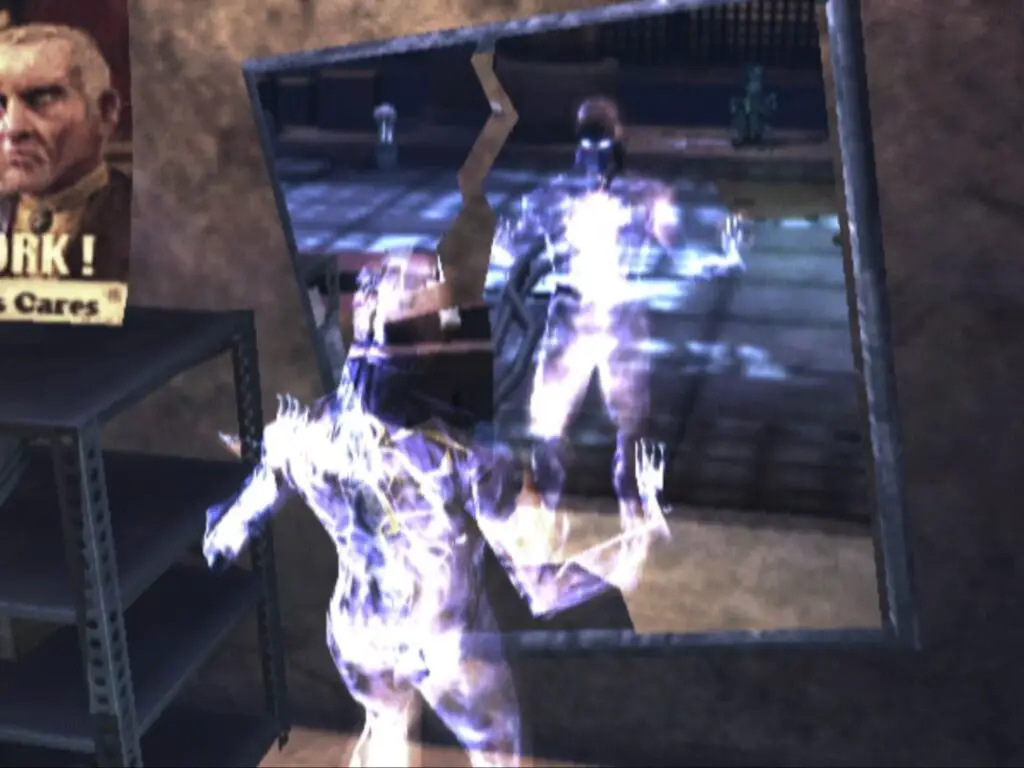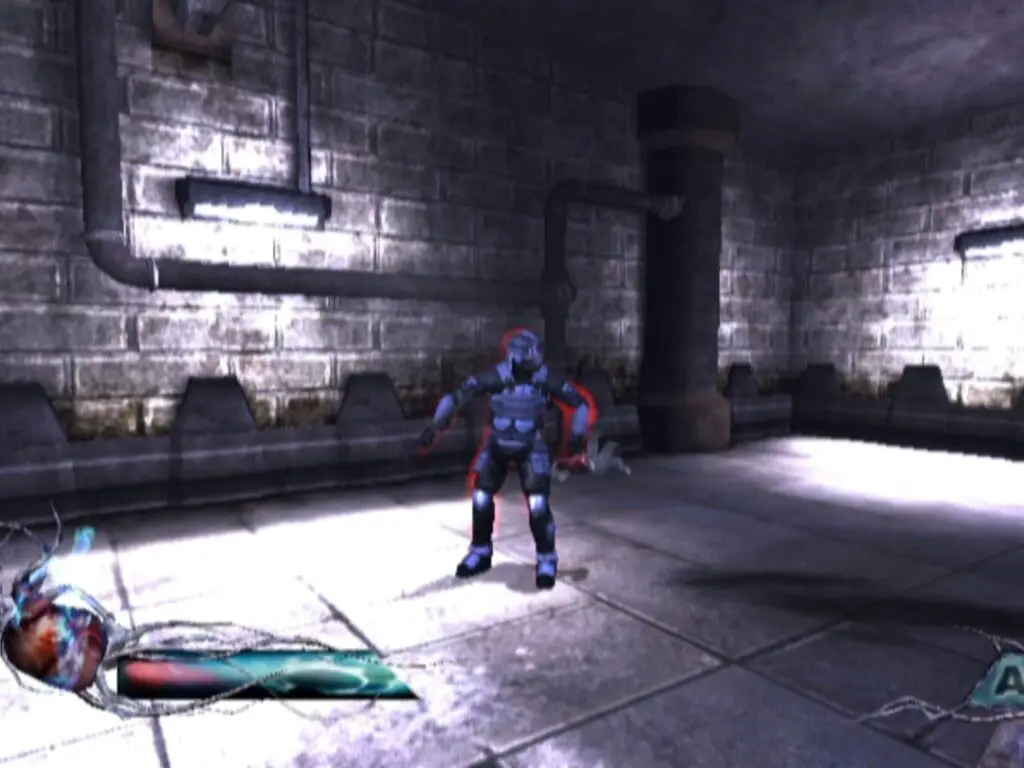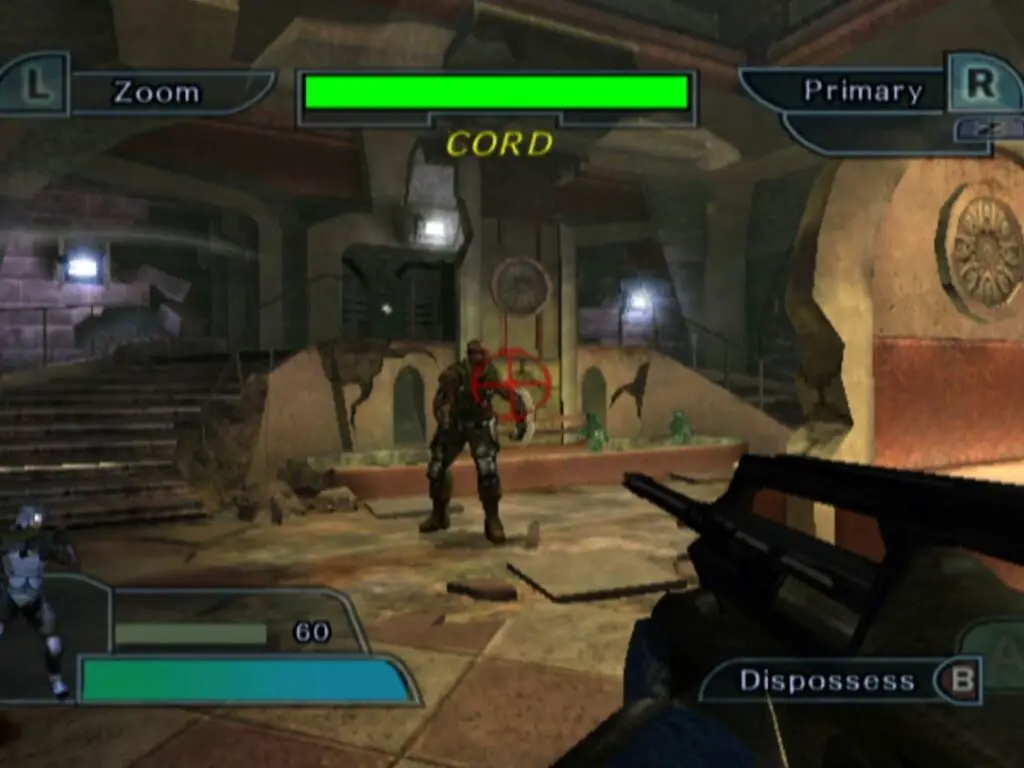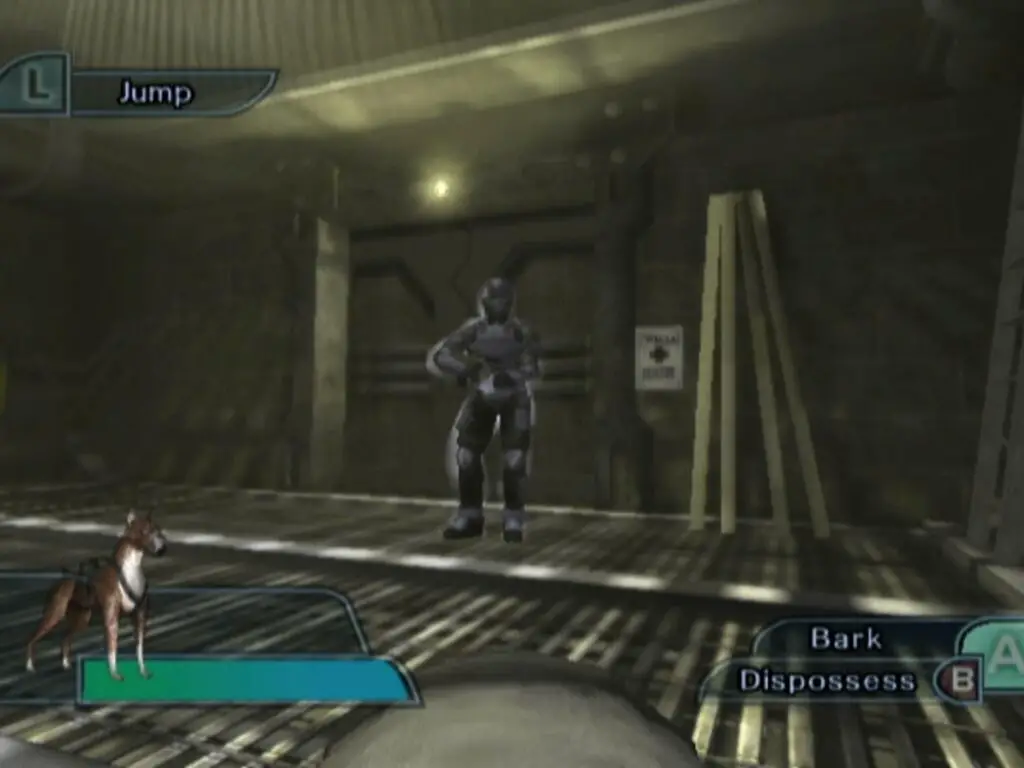While I really enjoy playing Geist on GameCube, I also think that it is a terrible game. This paradoxical statement is one that I have been struggling with for years. This is not a case of a game being so bad it’s good or being enjoyable in an ironic manner, rather Geist is a game that I wholeheartedly and unironically enjoy in spite of the fact that I fully acknowledge that it is a bad game.
Geist has bland environments, a cliche-ridden story, brain-dead enemy AI, as well as inconsistent tone, level design, and gameplay. Yet I can’t get enough of this game. I suppose that part of my love for this game might be nostalgia, though that theory doesn’t hold water when one considers the fact that I felt this way about the game even when I played through it for the first time. Apparently, I am not the only one who feels this way as the game has managed to garner something of a cult following. Which begs the question, what is it about this game that allows those who play it to ignore its glaring flaws?
Overview

Before anything else, I should give a brief overview of Geist for those not already in the know. Geist is a first-person shooter, but with a twist; that being that the main character Rami has had his soul forcibly removed from his body. He spends most of the game as a disembodied ghost with the ability to possess both living creatures and inanimate objects. In the case of living creatures, they can only be possessed if they are first frightened. Thus gameplay is generally split between two modes; in the first player possesses inanimate objects and non-combat-related living hosts to solve environmental puzzles in a manner similar to that of a point-and-click adventure game, while in the second players take possession of armed hosts and use them to shoot through more traditional FPS stages.
Story

The story is fairly generic, taking obvious inspiration from the likes of DOOM and Half-Life. An evil corporation is doing experiments with interdimensional portals, in this case as a means of separating people’s souls from their bodies to create an army of spectral super soldiers. Inevitably something goes wrong and monstrous creatures begin spilling from the portal. The story is very stock, yet I found it oddly compelling and it kept me interested enough to want to find out what happened next. I think that part of it is the characters, none of which are particularly deep or well-written, but they are all memorable with interesting quirks that hint at the possibility of greater depth. For example, I found it oddly endearing to discover that the mercenary leader trying to hunt you down is terrified of dogs. It is admittedly a small detail, but one that helps make this normal stock archetype feel more human. The story also manages a few surprisingly suspenseful moments that kept me on the edge of my seat. Overall, as cliche and poorly written as the story is, it was never truly offensively bad and was at the very least always interesting since you could never predict what would happen next.
Presentation

Presentation, as stated above, is generally very poor, with drab environments, poor music quality, and an uncapped framerate that can vary anywhere from 15 to 60 fps. That being said, none of this is much of an impediment to enjoying the game — even the framerate isn’t really that big of an issue since the game doesn’t exactly require split-second reflexes (for those using Dolphin this can even be circumvented somewhat by overclocking the GameCube). Graphics, while not very pretty, are always clear and generally get the job done.
For me at least, the real saving grace of this game’s presentation is the music. While Geist does use generally low-quality midi, it nonetheless manages to produce some really catchy beats within these limitations. I am particularly fond of the tracks “Fighting Force” and “Rami”, both of which I enjoy listening to regularly even outside of the game (In fact I am listening to them even as I write this). This game’s music does a lot to enhance the mood of this game, turning what would normally be a boring shoot-out into an epic moment.
Gameplay

Gameplay in shooting segments generally consists of basic gunfights within bland hallways. Each of the hosts that the player can possess will generally have access to one weapon with unlimited ammo. In order to create a fail state the game will end if the player either runs out of living hosts in an area or else if a crucial host dies. There are some interesting ideas in a few fights, such as having the ability to possess hosts with interesting weapons like a rivet gun or a sniper rifle. By far the best shooting sections are those that allow the player to make creative use of their possession abilities, such as manipulating machines and objects in the environment to attack the enemy. One particular highlight was a mission in which the player is asked to assassinate a target that they cannot shoot with any possessive hosts. The solution was to possess the target themself and force them to walk into an open elevator shaft. But as much fun as these portions can be, the vast majority of gunfights are largely uninspired.
Where the game excels is in its puzzle sequences. In these segments, the player must possess various inanimate objects to scare potential hosts, as well as use the unique abilities of said hosts to solve problems. These puzzles have their fair share of jank — for one thing, the game is often inconsistent in terms of what you can or can’t possess, it is also painfully obvious that there is only ever one very specific solution to each problem. These issues don’t detract from how genuinely clever many of these puzzles are and how they make great use of your abilities. In fact, these segments are so enjoyable that they further highlighted just how poor the shooting segments were and made me wish the team had made this the entire focus of the game.
Conclusions

I think that the secret to this game’s appeal lies in the fact that, as flawed as the game can be, it is almost never truly frustrating. The low points are never so bad as to outweigh the fun of the highs. When I think back on my time playing the game I remember the clever puzzles, the catchy music, and the few fun gun fights. While the rest of the game might be bad, it isn’t to the point of tainting the entire package in retrospect. Beyond that there is also a novelty to the experience; this is a very unique premise that not many games have explored and it is brimming with unexplored potential. It is clear that developer n-Space had grand ambitions for this game and, in spite of all the jank, that ambition shows in the final product. Geist is ultimately a game that is less than the sum of its parts, but that does not mean that it is not worth playing and cannot be enjoyed in spite of its problems. I would never in good conscience call Geist a well-made game, but this doesn’t mean that I didn’t have a blast playing it.






